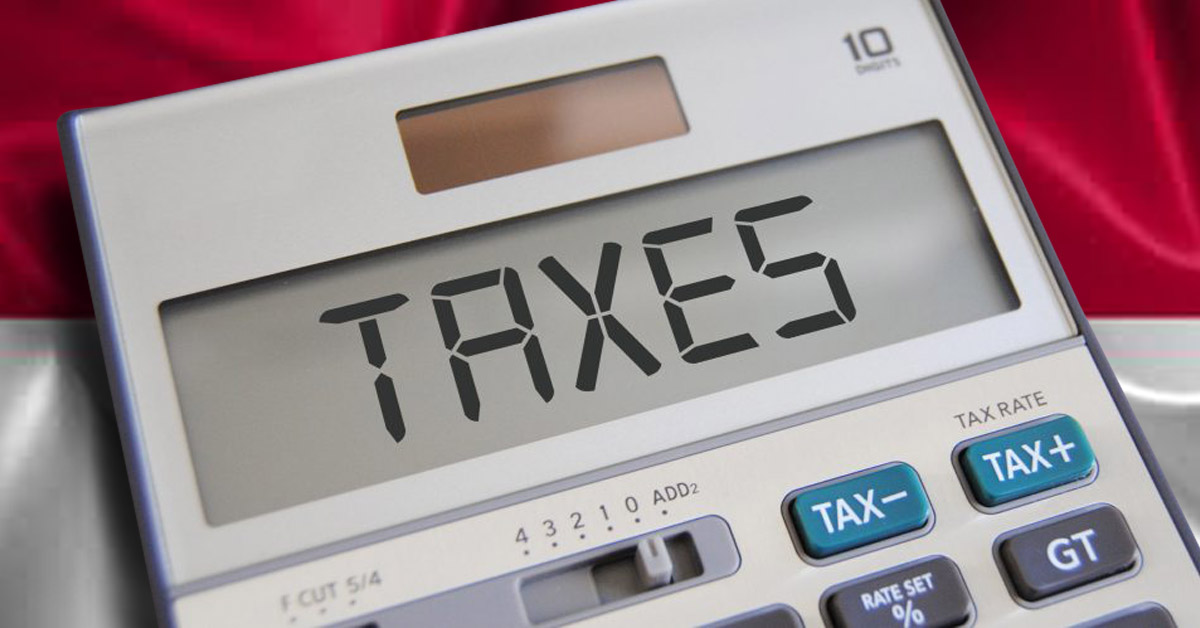Indonesia’s Commodity Futures Trading Supervisory Body (Badan Pengawas Perdagangan Berjangka Komoditi or “Bappebti”) has issued the long-awaited list of cryptoassets that can be legally traded in Indonesia.
This list of approved cryptoassets is contained in Bappebti Regulation No. 7 of 2020 regarding the Stipulation of the List of Cryptoassets that Are Allowed to Be Traded in the Cryptoasset Physical Market (“Bappebti Reg. 7/2020”).
Bappebti Reg. 7/2020 was issued and took effect on December 17, 2020, but was only made public in mid-January 2021. Its main feature is the list of 229 cryptoassets that can legally be traded in Indonesia.
This is an implementing regulation for Bappebti Regulation No. 5 of 2019 regarding Technical Provisions for the Organization of the Cryptoasset Physical Market on the Futures Exchange, as lastly amended by Bappebti Regulation No. 3 of 2020 regarding the Third Amendment of Bappebti Regulation No. 5 of 2019.
List of Legally Traded Cryptoassets
Bappebti Reg. 7/2020 contains a list of 229 cryptoassets that have been vetted by Bappebti to provide more comfort to Indonesians interested in trading cryptoassets.
What this regulation means in practical terms is that prospective cryptoassets physical traders (calon pedagang fisik aset kripto) and cryptoassets physical traders (pedagang fisik aset kripto), as platforms where consumers can buy and sell cryptoassets, can legally only trade those cryptoassets included in the list in this regulation.
Off-List Cryptoassets
Cryptoasset traders as mentioned above that have been trading cryptoassets not included in the approved list will have 30 days since the issuance of Bappebti Reg. 7/2020 to stop the trading of such off-list crypto assets. During this 30-day period, the traders will need to ask their customers to liquidate their off-list cryptoassets or transfer such cryptoassets to the customers’ cryptoasset wallets. The traders shall continue to responsible for the cryptoassets until such time as the customers withdraw the cryptoassets from the traders.
Bappebti Reg. 7/2020 indicates that the current list of 229 cryptoassets is preliminary in nature and cryptoassets could be added to or removed from the list. For any cryptosset removed from the approved list the 30-day period as described above will be applicable.
Amendment to List of Cryptoassets
A cryptoassets physical trader has the right to submit a proposal to add or remove a cryptoasset from the list of cryptoassets that can be legally traded. Such proposal is to be submitted to Bappebti through the Cryptoassets Futures Exchange (Bursa Berjangka Aset Kripto). The proposal will be reviewed by the Cryptoaassets Futures Exchange and the Cryptoassets Committee (Komite Aset Kripto), neither of which have been established as of this writing. Once the review process is completed, the head of Bappebti may stipulate an addition to or removal from the list of legally traded cryptoassets.
Regardless of any such proposals from cryptoassets physical traders, the Cryptoassets Futures Exchange and the Cryptoassets Committee are obligated to evaluate the list at least once a year and report the results to Bappebti.
If the Cryptoassets Futures Exchange and the Cryptoassets Committee have still not been established then the review of the cryptoassets list and submitted proposals will be handled by Bappebti, with input from business players in the cryptoassets sector.
Obligations and Guidelines
The highlight of Bappebti Reg. 7/2020 is the list of cryptoassets that can be legally traded in Indonesia. But it also stipulates the following obligations for cryptoassets physical traders:
- formulate standard operating procedures to monitor and assess the cryptoassets being traded by the cryptoassets physical trader;
- independently and actively monitor and asses the cryptoassets being traded by the cryptoassets physical trader;
- actively submit the results of the monitoring and assessment of traded cryptoassets to Bappebti, the Cryptoassets Futures Exchange and the Cryptoassets Committee; and
- independently implement restrictions on cryptoassets that do not meet the risk criteria set out by the trader.
Further, Bappebti Reg. 7/2020 provides a guideline containing criteria to assess whether a cryptoasset may be deemed as qualified for inclusion on the list of cryptoassets that can be legally traded in Indonesia.
List of Cryptoassets That Can Be Legally Traded in Indonesia
Bappebti has stipulated that the following 229 cryptoassets can be legally traded in Indonesia:
| 1. Bitcoin | 81. Verge | 161. Storm |
| 2. Ethereum | 82. Pax gold | 162. Vertcoin |
| 3. Tether | 83. Matic network | 163. Ttc |
| 4. Xrp/ripple | 84. Kava | 164. Metadium |
| 5. Bitcoin cash | 85. Komodo | 165. Pumapay |
| 6. Binance coin | 86. Steem | 166. Nav coin |
| 7. Polkadot | 87. Aelf | 167. Dmarket |
| 8. Chainlink | 88. Fantom | 168. Spendcoin |
| 9. Lightcoin | 89. Horizen | 169. Tael |
| 10. Bitcoin sv | 90. Ardor | 170. Burst |
| 11. Litecoin | 91. Hive | 171. Gifto |
| 12. Crypto.com coin | 92. Enigma | 172. Sentinel protocol |
| 13. Usd coin | 93. V. Systems | 173. Quantum resistant ledger |
| 14. Eos | 94. Z coin | 174. Digix gold token |
| 15. Tron | 95. Wax | 175. Blocknet |
| 16. Cardano | 96. Stratis | 176. District0x |
| 17. Tezos | 97. Ankr | 177. Propy |
| 18. Stellar | 98. Ark | 178. Eminer |
| 19. Neo | 99. Syscoin | 179. Ost |
| 20. Nem | 100. Power ledger | 180. Steamdollar |
| 21. Cosmos | 101. Stasis euro | 181. Particl |
| 22. Wrapped bitcoin | 102. Harmony | 182. Data |
| 23. Iota | 103. Pundi x | 183. Sirinlabs |
| 24. Vechain | 104. Solve.care | 184. Tokenomy |
| 25. Dash | 105. Gxchain | 185. Digitalnote |
| 26. Ehtereum classic | 106. Coti | 186. Abyss token |
| 27. Yearn.finance | 107. Origin protokol | 187. Cake |
| 28. Theta | 108. Xinfin network | 188. Veriblock |
| 29. Binance usd | 109. Btu protocol | 189. Hydro |
| 30. Omg network | 110. Dad | 190. Viberate |
| 31. Maker | 111. Orion protocol | 191. Rupiahtoken |
| 32. Ontology | 112. Cortex | 192. Vexanium |
| 33. Synthetix network token | 113. Sandbox | 193. Global social chain |
| 34. Uma | 114. Hash gard | 194. Ambrosus |
| 35. Uniswap | 115. Bora | 195. Refereum |
| 36. Dai | 116. Waltonchain | 196. Crown |
| 37. Doge coin | 117. Wazirx | 197. Daex |
| 38. Algorand | 118. Polymath | 198. Cryptaur |
| 39. True usd | 119. Request | 199. Spacechain |
| 40. Bittorrent | 120. Pivx | 200. Expanse |
| 41. Compound | 121. Coti | 201. Sumokoin |
| 42. 0x | 122. Fusion | 202. Honest |
| 43. Basic attention token | 123. Dent | 203. Auroracoin |
| 44. Kusama | 124. Airswap | 204. Vodi x |
| 45. Ok blockchain | 125. Civic | 205. Smartshare |
| 46. Waves | 126. Metal | 206. Exclusive |
| 47. Digibyte | 127. Standard token protokol | 207. Cosmo coin |
| 48. Icon | 128. Mainframe | 208. Aidcoin |
| 49. Qtum | 129. 12ships | 209. Adtoken |
| 50. Paxos standard | 130. Lambda | 210. Play game |
| 51. Ren protocol | 131. Function x | 211. Lunacoin |
| 52. Loopring | 132. Cred | 212. Staker |
| 53. Ampleforth | 133. Ignis | 213. Klaytn |
| 54. Zilliqa | 134. Adex | 214. Flamingo |
| 55. Kyber network | 135. Moviebloc | 215. Wing |
| 56. Augur | 136. Groestlcoin | 216. Bella protocol |
| 57. Lisk | 137. Factom | 217. Mil.k |
| 58. Decred | 138. Nexus | 218. Bakery token |
| 59. Bitshares | 139. Lbry credits | 219. Lyfe |
| 60. Bitcoin gold | 140. Gemini dollar | 220. Ionomy limited |
| 61. Aragon | 141. Einsteinium | 221. Smart chain solution |
| 62. Elrond | 142. Vidycoin | 222. Kryptovit |
| 63. Enjin coin | 143. Nkn | 223. Eautocoin |
| 64. Band protocol | 144. Go chain | 224. Quantum |
| 65. Terra | 145. Cream finance | 225. Bankex |
| 66. Balancer | 146. Medibloc | 226. Chaincoin |
| 67. Nano | 147. Fio protocol | 227. Hara coin |
| 68. Swipe | 148. Nxt | 228. Venus protocol |
| 69. Solana | 149. Aergo | 229. Alpha finance |
| 70. Bitcoin diamond | 150. High performance blockchain | |
| 71. Dfi.money | 151. Cartesi | |
| 72. Decentraland | 152. Tenx | |
| 73. Avalanche | 153. Siacoin | |
| 74. Numeraire | 154. Raven coin | |
| 75. Golem | 155. Status | |
| 76. Quant | 156. Storj | |
| 77. Bytom | 157. Electroneum (etn) | |
| 78. Serum | 158. Aurora | |
| 79. Iexec rlc | 159. Orbs | |
| 80. Just | 160. Loom network |
For more information, please contact:

Harry Kuswara, Associate,
This publication is intended for informational purposes only and does not constitute legal advice. Any reliance on the material contained herein is at the user’s own risk. All SSEK publications are copyrighted and may not be reproduced without the express written consent of SSEK.




































 SSEK Legal Consultants
SSEK Legal Consultants Rusmaini Lenggogeni
Rusmaini Lenggogeni Denny Rahmansyah
Denny Rahmansyah







